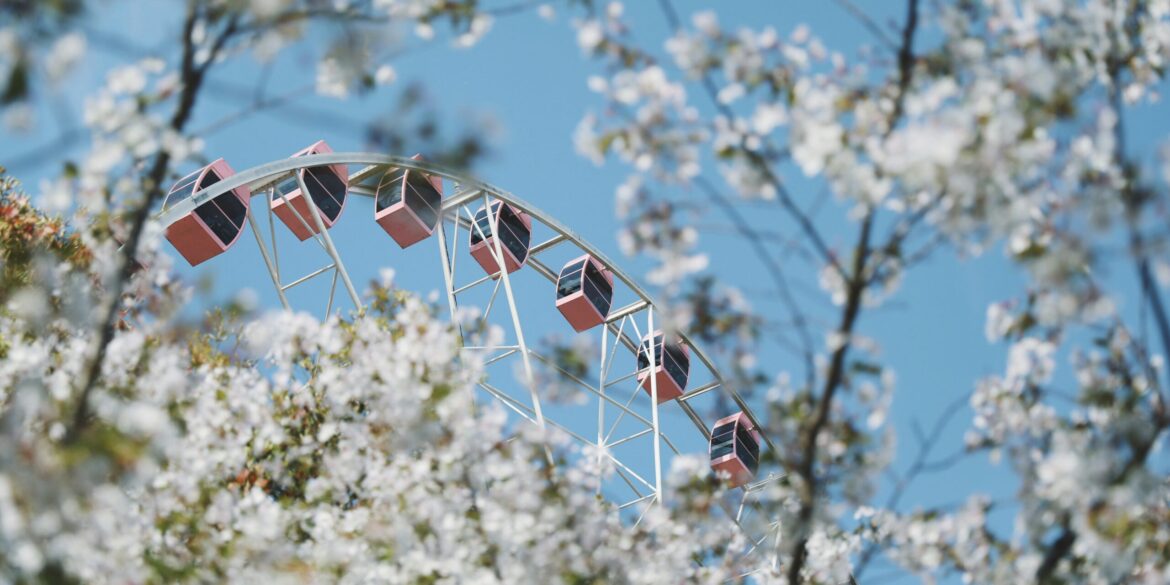As summer temperatures rise, so does the emergence of a quirky, yet increasingly popular tradition: Summerween. The summer variant of Halloween, originally inspired by the animated series Gravity Falls, has grown from a niche trend into a nationwide phenomenon. And as the trend expands, federal agencies are now stepping in to ensure that this non-traditional celebration remains safe, environmentally responsible, and in line with consumer protection laws.
The Rise of Summerween Across the U.S.
Summerween has gained considerable traction, particularly in warmer states, as people seek to combine the festive fun of Halloween with the joys of summer weather. Instead of waiting until fall, which is when Halloween is typically celebrated, families across the United States are embracing this version of Halloween during the summer months. From decorations to costumes and even trick-or-treating, Summerween offers a playful twist on a beloved tradition.
In Miami, retailers have taken notice of the trend, with stores like Target and Walmart stocking Halloween-themed decorations and costumes well before the fall. Some Miami-based businesses have even started hosting Summerween-themed events, with costume parties, parades, and outdoor festivals. These celebrations are drawing larger crowds each year, with people eagerly taking part in the festive spirit despite the heat.
Why is Summerween Gaining Popularity?
Several factors are contributing to the rise of Summerween. First, the extended summer break for schools provides families with an opportunity to celebrate in the comfort of warm weather. Halloween, which is typically associated with the fall season, can be limited by cooler temperatures and sometimes harsh weather conditions. Summerween offers families a chance to enjoy Halloween-like festivities without the unpredictable fall weather.
Retailers are also responding to the surge in demand. A recent survey by RetailMeNot revealed that 27% of Americans are participating in Halloween-like celebrations earlier in the year. This trend could also be attributed to inflation and supply chain concerns, as consumers seek to purchase holiday items ahead of time to avoid price hikes closer to the traditional October celebration.
The Role of Federal Agencies and Consumer Protection
While Summerween celebrations are mostly lighthearted and fun, they have caught the attention of federal agencies like the Federal Trade Commission (FTC) and the Department of Homeland Security (DHS). These agencies are concerned with the sale of products that may not meet safety standards or environmental guidelines. For example, many of the inflatable pumpkins, plastic decorations, and novelty costumes that are sold during Summerween have raised environmental concerns due to their potential contribution to waste and pollution.
“The sheer volume of these products entering the market earlier in the year is concerning,” says Dr. Sarah Lee, an expert in consumer safety. “We need to ensure that these products are safe and meet the necessary quality standards, especially with such early availability.”
To address these issues, the FTC is focusing on ensuring that businesses aren’t making misleading claims about the safety and quality of Summerween products. There is also growing concern about the environmental impact of early-season plastic decorations, as the trend increases the demand for mass-produced, single-use items that often end up in landfills.
In addition to consumer protection, the DHS is also paying close attention to large gatherings and public events that feature Summerween celebrations. Cities like Miami are beginning to issue guidelines for public events to ensure that they comply with safety regulations and noise ordinances.
Local Communities Embrace the Summerween Trend
In Miami and other parts of Florida, Summerween is quickly becoming a popular community event. Miami Beach and Coral Gables have both seen an uptick in Summerween-themed events, including block parties, costume parades, and pop-up markets. These celebrations not only attract families and children but also provide a unique opportunity for local businesses to engage with their customers in a fun and festive environment.
However, not all communities are fully on board with the rise of Summerween. Some local governments are concerned about the logistics of hosting these events, such as crowd control, waste management, and noise complaints. In smaller neighborhoods, where the infrastructure for large festivals might not be as developed, there is a push to ensure that these celebrations don’t disrupt daily life.
Still, the sense of community that Summerween fosters is undeniable. In places like Little Havana and Coconut Grove, residents have transformed their streets into temporary Halloween wonderlands, complete with creative costumes and themed decorations. Miami’s vibrant cultural diversity has allowed for unique takes on Summerween, where Latin-inspired Halloween-themed festivals have been added to the mix, offering a rich fusion of traditions.
Looking Ahead: What’s Next for Summerween?
As Summerween continues to gain momentum, federal and local agencies are expected to release more detailed guidelines for events and product sales related to the holiday. These guidelines will aim to ensure the safe and responsible celebration of this non-traditional holiday while minimizing its environmental impact.
The future of Summerween is bright, especially as more people embrace the concept of off-season celebrations. It’s likely that, in the coming years, we will see the development of even more community-driven events, including eco-friendly festivals that focus on sustainability, as well as themed performances, art installations, and more interactive experiences for all ages.
For now, Summerween is a fun way to enjoy the spirit of Halloween while taking advantage of Miami’s warm weather. Whether it’s a small gathering with friends or a large-scale community event, this growing trend is reshaping the way we think about traditional holidays.

